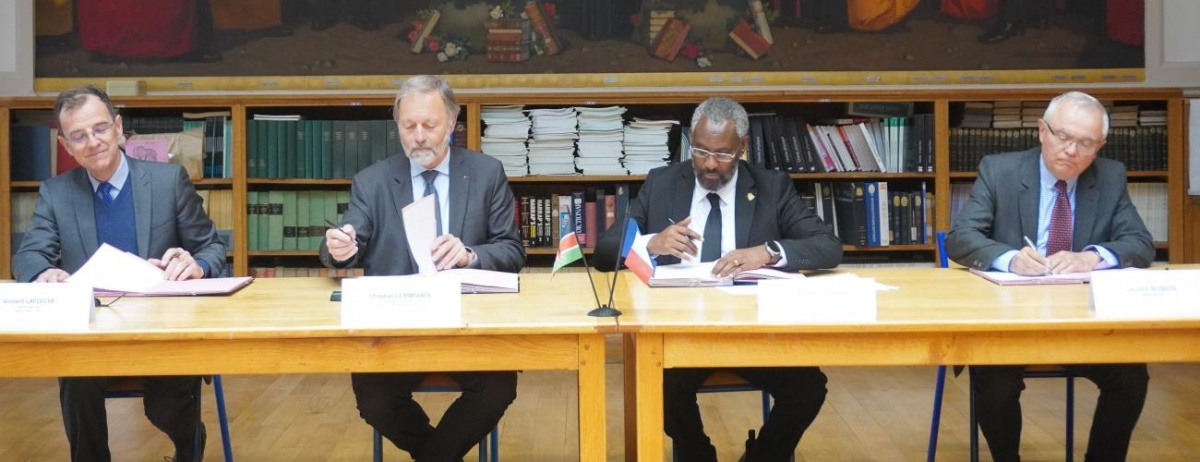The VC's Interview on Internationalization at ParisTech

4 schools in the ParisTech network – AgroParisTech, Chimie ParisTech – PSL, École des Ponts ParisTech, Mines Paris – PSL – and the University of Nairobi (UoN) signed a Tripartite Partnership Agreement (TPA) on May 11, with which CentraleSupélec is also associated /Paris-Saclay University.
The Vice Chancellor, Prof. Stephen Kiama was interviewed for the Paristech Newsletter.
What is your international strategy?
We want to welcome more international students and recruit more foreign teacher-researchers. This partnership is a unique opportunity for our students and staff to be more internationally exposed than they are today. Internationalization is written into the agreement. Indeed, we traditionally forge partnerships with English-speaking countries. There, our students will have the opportunity to go to French-speaking countries. The partners of the tripartite agreement were selected by the French Embassy because they are the best in their field and it was difficult for us to choose one.
What do you expect from this partnership?
We sampled several engineering faculties around the world. We observe how they operate, become international. There is something to learn, especially about university-private sector partnerships and the many start-ups. In this area we need to make our students more employable and create jobs. Some companies expand. Students should have a disruptive approach. We see this partnership as an opportunity for our students and staff, and also for French students and colleagues to learn. Indeed, the University of Nairobi is a good partner, leader in Kenya and East Africa. This is an opportunity to internationalize the faculties of science and technology and engineering. The entry point of this partnership is the creation of the Engineering and Science Complex financed by a sovereign loan from AFD and the Kenyan Government. This is an opportunity to develop a new approach to teaching and learning, to dealing with governance issues and training. It is an entry point for short and long term partnerships, an opportunity for young people. Food security, climate change for example are areas of common interest.
You have visited the ParisTech schools. What lessons have you learned from it?
Problem-based learning (PBL) and entrepreneurial skills are really interesting. The combination of technical and behavioral skills, or of finance, of management, is necessary for engineers to deal with human issues, and not just infrastructure issues. Industry connections: working closely with industry in focus groups so students know why companies are hiring, what their needs are, and what to learn to bridge the gap. The laboratories and equipment are very impressive. Infrastructure is also important. We need partnerships
within the university and outside. This is what motivates the university and the government.
What should French schools learn from you?
: Each company's approach is different. Our students and staff learn with a different approach as we deal with local issues in Africa. Cooperation should open up French students to a different approach and culture. They have to think about our needs. In Kenya there are ultimately many more opportunities for start-ups. They can create teams. Companies can grow by recruiting French and Kenyans into their teams.
